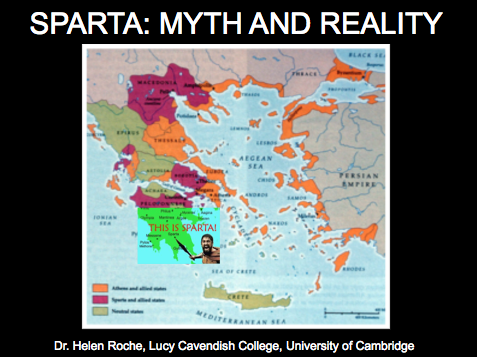Work
Presented at an international conference on 'Post-Classicisms', University of Cambridge, 17 June 2013.Read more...
 Review of 'Contested Commemorations' by Benjamin Ziemann
Review of 'Contested Commemorations' by Benjamin ZiemannReview of Veterans and Weimar Political Culture, by Benjamin Ziemann (Cambridge: Cambridge University Press, 2012), in The English Historical Review 131 (553), December 2016, pp. 1569-71.
Views of the Weimar Republic as essentially anarchic, unloved and unmourned have been extensively questioned in recent scholarship. Still, popular pronouncements tend to perpetuate such impressions – witness one critic of a recent exhibition, who began with the statement that ‘Nobody in Germany liked the Weimar Republic’. Read more...
 History's proximity? Crisis and Colonisation in Greece – and the Greek Imagination
History's proximity? Crisis and Colonisation in Greece – and the Greek ImaginationReview of Daniel M. Knight, History, Time, and Economic Crisis in Central Greece (New York: Palgrave Macmillan, 2015) and Sheila Lecoeur, Mussolini’s Greek Island: Fascism and the Italian Occupation of Syros in World War II (London: I.B. Tauris, 2015), in Reviews in History.
There were times during the resurgence of the economic crisis in 2015 when it seemed as if 'Greek-bashing' had become a pan-European pastime. In this fraught international context, Daniel Knight’s first monograph provides a salutary reminder of the human consequences of austerity.Read more...
Public lecture, given at the Wiener Library for the Study of the Holocaust and Genocide, London, 24 May 2013.Read more...
 Greek Debts: Literal and Symbolic; Ancient and Modern
Greek Debts: Literal and Symbolic; Ancient and ModernReview of Johanna Hanink's The Classical Debt: Greek Antiquity in an Era of Austerity (Cambridge, MA: The Belknap Press of Harvard University Press, 2017), in Reviews in History.
At the height of the Greek financial crisis, reports from colleagues based in Athens painted a sorry picture of citizens who had fallen upon hard times desperately rummaging in dustbins to supplement their dwindling larders. The statistics told an even grimmer story – between 2010 and 2011, suicide rates in Greece rose by 40 per cent.Read more...
Presented at Declines and Falls: Perspectives in European History and Historiography - Twenty Years of the European Review of History / Revue européenne d'histoire - An Anniversary Conference, Central European University, Budapest, 17 May 2013.Read more...
Presented at the Classical Association Conference 2013, University of Reading, 5 April 2013.Read more...
Presented at an international conference on Anglo-German Perceptions and Prejudices since 1800, University of Cambridge, 21-22 March 2013.Read more...
 Outreach project at Soham Village College
Outreach project at Soham Village CollegeOn 20 March 2013, Helen gave a talk, entitled 'Sparta: Myth and Reality' to GCSE students at Soham Village College, a specialist Technology and Languages College which gained Academy status in 2011. This was the very first meeting of the school's new Classics society, 'Plato's People'. The History GCSE classes also attended, which gave the discussion afterwards an extra piquancy - particularly since Spartan reception in Nazi Germany was one of the themes. The event was organised in collaboration with the Cambridge University Museums outreach initiative, led by Rachel Sinfield, as well as Bessie Owen and Jon Stenner, the Classics teachers at Soham VC.Read more...
 Review of 'The "New Man" in Radical Right Ideology and Practice, 1919-1945'
Review of 'The "New Man" in Radical Right Ideology and Practice, 1919-1945'Review of The “New Man” in Radical Right Ideology and Practice, 1919-1945, ed. Jorge Dagnino, Matthew Feldman, and Paul Stocker (London: Bloomsbury, 2018), published in Reviews in History, review no. 2386, April 2020.
During the interwar period, the figure of the ‘New Man’ constituted a powerful symbol of the promise and potential of a thorough-going political and anthropological revitalisation of society, which could effectively counteract widely-perceived notions of crisis and decline in the aftermath of the Great War.Read more...
